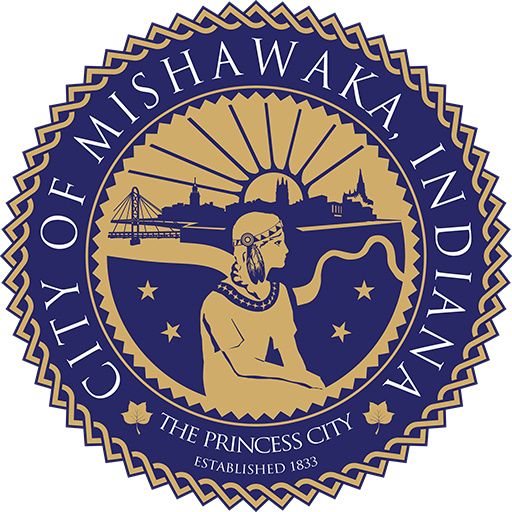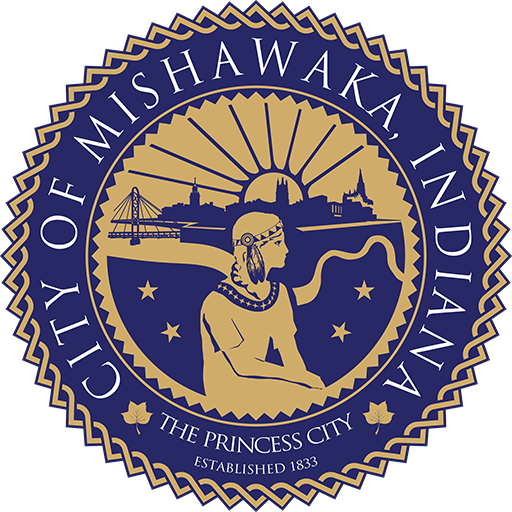City of Mishawaka Common Council Regulations
The following rules shall constitute the rules of City Common Council:
(A) Rule 1. When any member of the council or the public is about to speak on or deliver any matter to the council, they shall respectfully address themselves to the council chair. On being recognized, they shall confine themselves to the question before the council, avoiding personalities.
(B) Rule 2. When two or more persons arise at once, the chair shall name the member entitled to speak first.
(C) Rule 3. If any council member, in speaking or otherwise, transgresses the rules of the council, the presiding officer shall, or any member may, call him to order. The member so called to order, or another council member, may appeal, and the council shall, if appealed to, decide the case without debate. If the decision is in favor of the member called to order, that member may proceed but otherwise must remain silent. If the case requires it, a member so called to order may, after an appeal that fails, be liable to censure or other such punishment as the council may impose.
(D) Rule 4. If a member is called to order for words spoken in debate, the member calling him to order shall indicate the words excepted to, and they shall be taken down in writing at the clerk’s desk and read aloud to the council.
(E) Rule 5. A member may speak as often on the same question as necessary, but the mover of a proposition shall in any case be entitled to close the debate.
(F) Rule 6. When the chair is putting the question or addressing the council, no member shall walk out of the chamber. When a member is speaking, no member shall walk between the member and the chair.
(G) Rule 7. No member shall be recognized to speak unless seated, nor permitted to speak until recognized by the chair.
(H) Rule 8. Every motion made by the council and entertained by the chair shall be reduced to writing on the demand of the chair or any member, which shall be entered on the minutes with the name of the member making it, unless withdrawn at the same meeting.
(I) Rule 9. When a motion has been made, the chair shall state it or (if in writing) cause it to be read aloud by the clerk before debate of the motion; the motion shall then be in possession of the council but may be withdrawn at any time before a decision or amendment.
(J) Rule 10. When a question is under debate, no motion shall be received but to adjourn, to lay on the table, to hear the previous question (which motions shall be decided without debate), to postpone to a day certain, to refer or to amend, or to postpone indefinitely. Several motions shall have precedence in the order in which they are received.
(K) Rule 11. The motion to adjourn and the motion to fix a time to which the council shall adjourn shall always be in order, the latter motion taking precedence over the former.
(L) Rule 12. The motion to lay an amendment on the table shall not affect the subject to which it is proposed to amend.
(M) Rule 13. The previous question shall be put in this form: “Are you ready for the question?” It shall be admitted when demanded by a majority of the members present, and its effect shall be to put an end to all debate and to bring the council to a direct vote on the motion to commit, if such a motion has been made; if this motion does not prevail, then on pending amendments, and then on the main question.
(N) Rule 14. The motion to postpone to a day certain can be amended by altering the time or day.
(O) Rule 15. The motion to refer may be amended by altering the committee or by giving instructions.
(P) Rule 16. A motion to amend and a motion to amend amendments shall be in order, and it shall also be in order to offer a further amendment by way of a substitute to which one amendment or more may be offered, but either may be withdrawn before an amendment or a decision is reached thereon.
(Q) Rule 17. No motion or proposition postponed indefinitely shall be taken up again at the same or next succeeding regular meeting.
(R) Rule 18. A question shall be divided on the demand of any member, without requiring an amendment, if it includes two or more distinct propositions.
(S) Rule 19. When a motion has been made and carried or lost, it shall be in order for any member of the majority at the same meeting or the succeeding regular meeting to move for the reconsideration thereof, and such motion shall take precedence over all other motions except a motion to adjourn, and debate thereon shall be in order where the main question is debatable, but not otherwise.
(T) Rule 20. Where a motion to reconsider has been passed in the affirmative, the question immediately becomes the business of the council.
(U) Rule 21. A motion to reconsider a vote may be tabled, but a motion to reconsider a vote, laying a motion to reconsider on the table, shall not be in order.
(V) Rule 22. When a resolution is offered or a report or other matter presented, the presiding officer may take the reception thereof for granted unless objection is made, in which instance a formal motion shall be required.
(W) Rule 23. Appeals, questions of order, objection to the consideration of a question, the reading of papers, leave to withdraw a motion, and suspension of the rules are questions which shall take precedence over and be decided before the questions giving rise to them. Several questions cannot be amended; all questions of order that may arise pending a question that is not debatable must be decided without debate.
(X) Rule 24. Ordinances and resolutions shall be numbered in the order in which they are passed, but dispatched in the order in which they are introduced, unless the council shall direct otherwise.
(Y) Rule 25. Every ordinance shall be read two times before its passage.
(Z) Rule 26. The first reading of an ordinance shall be by title only, unless any member of the council requests that the ordinance be read in full.
(AA) Rule 27. No ordinance shall be passed on the same day, or at the same meeting that it is introduced, except by unanimous consent, and then only when there are present and voting at least two-thirds of all members of the council, as is set forth in IC 36-4-6-13.
(BB) Rule 28. The second reading of the ordinance and reading of resolutions shall be by title only. After the completion of the reading of the title, the reader shall briefly state the subject matter or contents of the ordinance or resolution unless the subject matter or contents is evident from the reading of the title itself.
(CC) Rule 29. Following the second reading, the ordinance shall be ready for the committee report, public hearing and action by the council. Following the reading of resolutions, they shall be ready for public hearing and action by the council. Prior to taking a vote on the proposed ordinance or resolution, the presiding officer shall request that anyone who wishes to speak in favor of or against the proposed ordinance or resolution shall state his or her name and address for the record.
(DD) Reserved.
(EE) Rule 31. No proposition to rescind or change any standing rule or order of the council shall be passed at the same meeting it is submitted; nor shall any proposition having the force and effect of a by-law or a standing rule or order relating to the governing of the council or the duties of any city officer be passed except in the form of an ordinance and according to the forms prescribed for the passage of ordinances.
(FF) Rule 32. The rules and practices of Robert’s Rules of Order shall govern the council in all cases to which they are applicable and not inconsistent with the standing rules and orders of the council.
(GG) Rule 33. All proposed ordinances and resolutions shall be filed with the clerk and must be submitted to each and every council member at least 72 hours prior to the next regular meeting of the Common Council if they are to be considered at that meeting. An exception to this rule can be made by a majority of the members present at the meeting.

